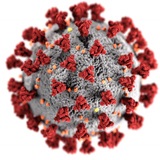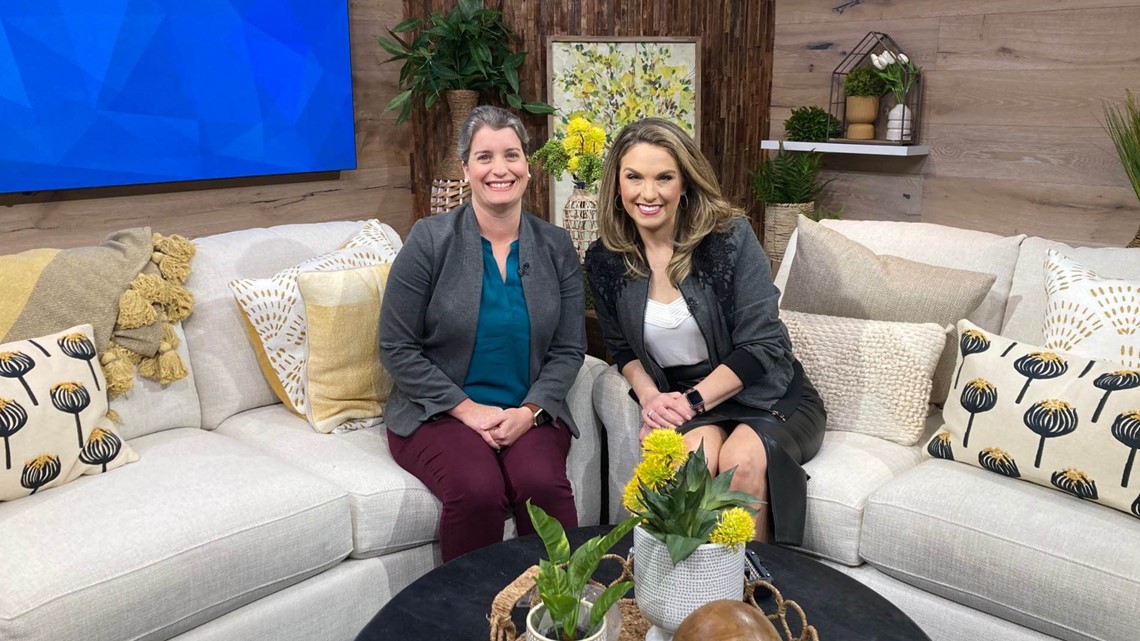Frequently asked questions and answers on COVID-19 vaccination – UNICEF
Yes, all vaccines in the country are safe for use. Before a vaccine is certified for use, it must receive approval and authorization from the World Health Organization (WHO). In Nigeria, in addition to WHO approval and authorization, the National Agency for Food and Drug Administration and Control (NAFDAC) certifies all vaccines including COVID-19 vaccines safe for use. Even when the vaccine is in use, NAFDAC continues to monitor the vaccine to ensure all safety guidelines are maintained.
COVID-19 vaccines trigger the immune system to recognize the invading virus which leads to the production of antibodies to fight the virus.
Most brands of COVID-19 vaccine require two doses of varying intervals between the doses for full protection. Moderna is two doses, four weeks apart; Oxford/AstraZeneca is two doses and six to 12 weeks apart; and Pfizer is two doses, three weeks apart. However, some brands such as Johnson and Johnson require a single dose for full protection against the virus.
In Nigeria, COVID-19 vaccine is administered to persons 18 years and older including pregnant women and lactating mothers.
As of 15th November 2021, the country has four brands of COVID-19 vaccines received from the COVAX Facility and the African Union: AstraZeneca, Moderna, Johnson & Johnson and Pfizer vaccines.
No. COVID-19 vaccination is not compulsory. However, with effect from 1st December 2021, Federal government employees shall be required to show proof of COVID-19 vaccination or present a negative COVID-19 PCR Test result done within 72 hours to gain access into their offices in all locations within Nigeria.
COVID-19 Mass Vaccination Campaign is an initiative of the National Primary Health Care Development Agency in collaboration with the State government and Partners to increase access and utilization of COVID-19 vaccine in Nigeria. It entails expanding vaccination to all public health facilities, Private Health facilities, community pharmacies, COVID-19 Diagnostic Centres, high human traffic public places such as shopping malls, markets, event centres, etc. It is aimed to rapidly increase uptake of COVID-19 vaccine across 36 States and FCT to rapidly move towards achieving herd immunity.
You can get the COVID-19 vaccine in any public and designated private health facilities, COVID-19 Diagnostic Centres, motor parks, shopping malls, markets, event centres, schools, and other public places, in 36 States and FCT and across all Local Government Areas (LGAs) in Nigeria. Visit NPHCDA website at www.nphcda.gov.ng for more detail information on COVID-19 vaccination and vaccination sites.
No. COVID-19 vaccine is available at designated private health facilities that met the selection criteria of the National Primary Health Care Development Agency. The criteria include number of clients per day, provision of immunization services, location in urban and peri-urban area, must have a functional cold chain equipment, and must be registered with the appropriate authorities.
COVID-19 Mass Vaccination sites are located in public places such as shopping mall, recreational centres, Transport hubs (road, water, and airports), Schools, Markets, and any other places with high human traffic.
The COVID-19 vaccine does not hurt or make you sick. Mild side effects may or may not occur as in any other vaccinations as every individual reacts to vaccines differently.
Mild side effects such as fatigue, headache, chills, slight fever and pain or numbness at the site of vaccination may occur and disappear within a day or two. However, in case you observe any reactions after vaccination, contact the Disease Surveillance and Notification Officer, whose phone number is on your vaccination card or report to your healthcare provider.
No. Nigeria’s COVID-19 vaccination card or certificate has not been rejected in Europe, America, or any country in the world. Every country has its COVID-19 protocol for foreigners at the point of entry just as we have our protocol in Nigeria. Nigeria is still in the amber list of some of these countries, and this means that when you travel to those countries you are expected to self-isolate for 10 days irrespective of your vaccination status, while you do the PCR Test to ensure that you are negative. However, with effect from 11th October 2021, Nigerians travelling to UK will no longer be subjected to that kind of treatment at the point of entry as the UK government has delisted Nigeria from its amber list having satisfied the COVID-19 required conditions.
No. NPHCDA does not recommend mixing different COVID-19 vaccine brands. There is enough doses of Oxford/AstraZeneca vaccines for those who have taken their first dose of the vaccine as well as those taking their first dose.
Yes. You can still receive the second dose of Oxford/AstraZeneca vaccine. The maximum interval between first and second dose of Oxford/AstraZeneca vaccine is 16 -20 weeks. Recent studies have shown that the longer the interval, the more effective. It is therefore advised that you take your second dose even if you have reached the maximum time interval.
No. NPHCDA does not recommend mix and match of different brands of COVID-19 vaccines. For vaccines that require two doses, both doses must be from the same brand of COVID-19 vaccine. In Nigeria, we do not mix different brands of COVID-19 vaccine. Ensure you receive the same brand of COVID-19 vaccine for your first and second dose.
Yes, Nigeria has adequate capacity to store, manage and transport the various brands of COVID-19 vaccines that WHO has approved and authorized for use. The Federal Government, through NPHCDA has purchased Ultra Cold Chain (UCC) freezers for the National, Zonal and State Cold Stores to store vaccines that require very low temperature between -800C to -150C. There are Walk-in Freezer Room (WIFR) and or Walk In Cold Rooms (WICRs) in all the 36 states and the FCT. All wards are equipped with at least one Solar refrigerator to store vaccines at +20C to +80C to ensure the potency of vaccines are guaranteed up to the last mile. Highly trained cold chain officers are available at all levels to manage the equipment and the vaccines.
All COVID-19 vaccines are effective against all variants of the virus. Therefore, it is advised that you get vaccinated as soon as possible. The best vaccine is the one that is available to you.
All COVID-19 vaccine brands approved for use in Nigeria are effective against all variants of COVID-19, including the Delta variant.
It is strongly recommended you get vaccinated against COVID-19 to stop the spread of the virus. When you get vaccinated, you protect yourself, your family, friends, and community against the disease. Vaccination with COVID-19 vaccine or any other vaccine is not mandatory in Nigeria. However, evidence of vaccination against some diseases such as Yellow Fever and recently COVID-19 is required for entry into some countries.
There are no contraindications to show that lactating mothers cannot be vaccinated with COVID-19 vaccine if they are eligible. COVID-19 vaccine is safe for use.
Yes. It is recommended that pregnant women should take COVID-19 vaccine after due consultations with their health care provider.
Yes. COVID-19 vaccination is especially important for people with underlying medical conditions such as hypertension, heart disease, lung disease, diabetes, cancer, etc. People with these conditions are more likely to get very sick from COVID-19. COVID-19 vaccines do not cause the disease but helps the body develop immunity against the disease.
Yes. You should still be vaccinated if you have had COVID-19 previously or if you have a positive antibody test. Vaccination will reduce the risk of re-infection with COVID-19 or if infected, having severe sickness.
You should finish your ten-day isolation period before receiving the vaccine. If you currently have COVID-19, you should wait until you have recovered from the initial illness and have completed your isolation period before getting vaccinated.
Every faith believes in the sacredness of life. Vaccination is one of the ways to preserve life. Therefore, do all you can, including vaccination to preserve life. Getting vaccinated against COVID-19 protects you, your family, friends, and community against the virus.
The COVID- 19 vaccine does not contain any controversial substances. All Vaccines, including COVID-19 vaccine, are solely medical and not nutritional, and do not alter your spiritual fast.
The vaccine works! You are advised to practice COVID-19 preventive measures because getting the vaccine does not stop you from getting exposed to someone who has been infected, but the vaccination and development of immunity will stop the infection from progressing to disease, thereby protecting you. Even after vaccination, continue to wear your facemasks, frequently wash your hands with soap and running water or alcohol-based hand sanitizer, observe physical distancing and avoid large gathering and unnecessary travels.
You can get COVID-19 no matter how sunny and warm it is. Exposing yourself to the sun or high temperatures does not prevent or treat COVID-19. So, whatever the weather you should follow the official advice to protect yourself from the virus.
Though garlic has some anti-microbial properties, there is no evidence that it can prevent Covid-19.
There is no evidence that the novel coronavirus can be transmitted through mosquitoes. The virus can be spread through droplets from coughing, sneezing or a patient’s saliva.
People may also become infected by touching surfaces that have been contaminated by the virus when touching their eyes, nose, or mouth without cleaning their hands.
COVID -19 is easily spread in crowded places, close-contact settings, especially where people have conversations very near each other, confined and enclosed spaces with poor ventilation.
Yes, it is possible. You may test negative if the sample was collected early in your infection and test positive later during the illness. You could also be exposed to COVID-19 after the test and get infected. Even if you test negative, you should still take steps to protect yourself and others.
The vaccine works! You are advised to practice COVID-19 preventive measures because getting the vaccine does not stop you from getting exposed to someone who has been infected, but the vaccination and development of immunity will stop the infection from progressing to disease, thereby protecting you. Even after vaccination, continue to wear your face mask, frequently wash your hands with soap and running water or alcohol-based hand sanitizer, observe physical distancing and avoid large gathering and unnecessary travels.




